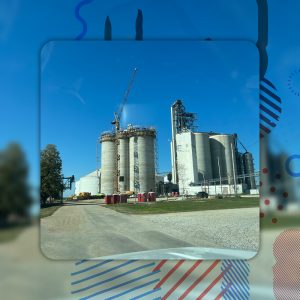Exploring Diversity in Iowa: The City with the Largest Black Population


Iowa, often celebrated for its picturesque landscapes and vibrant agricultural heartland, is also home to a rich tapestry of diverse communities. Among these, the Black community has significantly shaped the state’s cultural and social fabric. However, many might be surprised by the answer when it comes to identifying the city with the largest Black population in Iowa. In this article, we delve into the demographics, cultural vibrancy, and the challenges faced by the Black community in Iowa, spotlighting the city that stands out in population size.
Historical Context
The migration of African Americans to Iowa has a storied history, deeply intertwined with broader national trends. During the Great Migration in the early to mid-20th century, many Black families moved northward, seeking better economic opportunities and escaping the oppressive Jim Crow laws of the South. This movement significantly influenced the demographics of several Iowa cities. Des Moines, the state capital, became a central hub for African American settlers, providing jobs in the burgeoning industries and a semblance of community and hope.
Over the decades, Des Moines has evolved, with its Black community contributing to the city’s rich cultural heritage. Historical landmarks, such as the Iowa State Black History Museum, and events like the Juneteenth Celebration underscore the enduring legacy of the Black population here.
Current Demographics
When examining Iowa’s cities, Des Moines emerges as the city with the most prominent Black population. According to the latest census data, Des Moines has approximately 20,000 Black residents, about 10% of the city’s population. This demographic trend is not just a statistic but a vibrant reality that enriches the city’s cultural landscape.
Other cities like Cedar Rapids, Iowa City, and Davenport also have notable Black communities, but none match the size and influence of Des Moines’ population. This concentration is reflected in the city’s rich array of cultural institutions, churches, and businesses owned by Black entrepreneurs.
Cultural and Social Landscape
Des Moines’ Black community is a mosaic of cultural heritage, significantly contributing to the arts, music, and community activism. The community’s influence is evident in local events and cultural landmarks. The Des Moines Civil Rights Commission is pivotal in advocating for racial justice and equality, fostering a sense of unity and purpose among residents.
Events such as the Des Moines Black Arts Festival and the annual Juneteenth celebration are cornerstones of the community’s cultural calendar. These events celebrate African American culture and history and promote inclusivity and understanding among the broader population.
Economic and Educational Opportunities
Des Moines offers a variety of economic opportunities for its Black residents, though challenges remain. The city has several Black-owned businesses, ranging from restaurants and beauty shops to tech startups and law firms. Organizations like the African American Leadership Forum and the Urban League of Iowa are instrumental in supporting Black entrepreneurs and professionals, providing networking opportunities, mentorship, and access to capital.
Education is another critical area in which Des Moines has made strides. The Des Moines Public Schools district, with initiatives like the African American Leadership Academy, works to enhance educational outcomes for Black students. Additionally, institutions like Drake University and Grand View University are recognized for their commitment to diversity and inclusion, offering scholarships and programs tailored to support Black students.
Challenges and Opportunities
Despite these advancements, the Black community in Des Moines faces several challenges. Economic disparities, housing discrimination, and unequal access to healthcare are ongoing issues. The Black Lives Matter movement has brought renewed attention to these challenges, sparking dialogues and actions aimed at systemic change.
Community organizations, led by passionate activists and leaders, are at the forefront of efforts to address these disparities. Programs aimed at workforce development, affordable housing initiatives, and health equity are making a tangible difference. The Des Moines Police Department’s Community Policing Program, for instance, seeks to build trust and collaboration between law enforcement and the Black community, fostering safer neighborhoods and mutual respect.
Interviews and Personal Stories
To truly understand the heartbeat of Des Moines’ Black community, we spoke with several individuals who have shaped and continue to influence its landscape. Johnnie Williams, a local entrepreneur, shared his journey of establishing a successful tech firm in Des Moines. His story is a testament to the resilience and innovation within the community.
We also spoke with Maria Johnson, a community activist and founder of the Des Moines Black History Museum. Her tireless efforts to preserve and celebrate Black history in Iowa have inspired countless others to embrace their heritage and advocate for justice.
Future Outlook
Looking ahead, the future of the Black community in Des Moines is full of promise. New initiatives and collaborations are emerging to enhance community well-being and promote racial equity. The city’s plans to expand affordable housing, improve public health services, and support minority-owned businesses are steps in the right direction.
Moreover, educational and cultural institutions continue innovating, offering programs that bridge gaps and foster a sense of belonging. Establishing new scholarships, mentorship programs, and community centers will be crucial in shaping a more inclusive future.
Des Moines has the largest Black population in Iowa, a community rich in history, culture, and resilience. While challenges persist, the collective efforts of its residents and organizations are paving the way for a future defined by equality, opportunity, and unity. Understanding and supporting the Black community in Des Moines is an act of solidarity and a commitment to building a more just and inclusive Iowa. As we continue to explore and celebrate this vibrant community, let us all strive to be allies in the journey towards a better, more equitable world.
